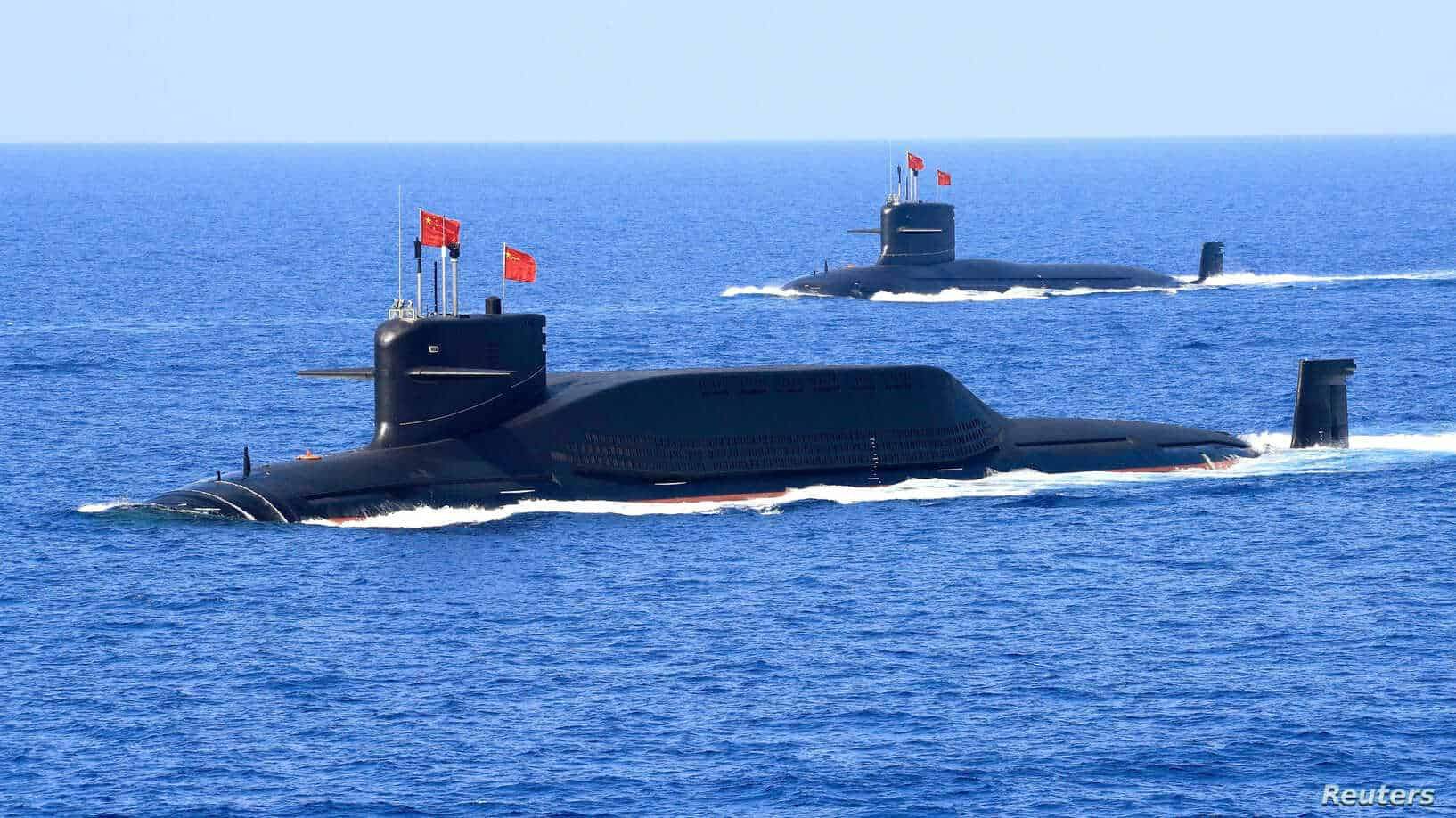Why China is Developing Military Vessels at the Center of its Coronavirus Outbreak

As China continues to recover from COVID-19, the city where the now global disease began is stepping up ship production for military and commercial purposes as part of its broader economic recovery, domestic media and experts say.
A state-owned builder of ships and submarines in Wuhan has worked overtime since March 3, the Chinese state-controlled Global Times news website reported last week. The facility of the China State Shipbuilding Corp. is “making up for time lost during the city's lockdown” and keeping an “undisclosed major project” on track, the website said.
China looks to Wuhan, where the COVID-19 coronavirus surfaced in December, as a key site for building vessels for the People’s Liberation Army Navy, said Collin Koh, maritime security research fellow at Nanyang Technological University in Singapore.
Factories in the central Chinese industrial hub turn out submarines for export, for example, to Pakistan and Thailand, he added.
“Wuhan is a key industrial city when it comes to indigenous production for the PLA modernization, as well as the fact that when you talk about exports of submarines, this is increasingly going to become a crown jewel of China’s present and future arms export,” Koh said.
In that vein, Chinese defense contractor Wuchang Shipbuilding Industry Co. built a complex 10 years ago on 3.3 square kilometers in Wuhan, U.S.-based defense research organization GlobalSecurity.org says. The site has “made significant contribution to the updating of the naval equipment and national defense of China,” GlobalSecurity.org says.
Wuchang Shipbuilding let its second wave of workers back on the job March 26 for a factory reopening a day later, the Global Times report says. The subsidiary of China State Shipbuilding Corp. makes ships and submarines.
Despite Wuhan’s location 840 kilometers from the sea, completed ships reach the Chinese coastline via the Yangtze River.
Wuhan is also known for a military school, a PLA chemical-biological weapons research center, and military logistics, said Alexander Huang, a defense-specialized strategic studies professor at Tamkang University in Taiwan.
“Wuhan is the center or the probably most important location for several things,” Huang said. “These are the things I know, the logistics center, the chem-bio research institute and some transportation and others.”
Much of China, including Wuhan, began powering back up in March after weeks of lockdowns that barred people from going to work. About 50,000 COVID-19 cases were confirmed in Wuhan through March 19, the official Xinhua News Agency says.
Renewed shipbuilding would fit in with what analysts call sustained Chinese coast guard and military activity near Taiwan and in the South China Sea, even at the peak of the virus outbreak. Malaysia, Vietnam and the Philippines, all of which contest Beijing’s South China Sea claims, are still too tied up fighting COVID-19 to bolster their own defenses, experts say.
China is “taking advantage of the lull in activity” around the world by bolstering its military in nearby seas, said Jay Batongbacal, international maritime affairs professor at University of the Philippines.
Vietnam, which has issued shelter-in-place orders to contain COVID-19, on Friday filed a complaint with China over what Vietnamese media call the sinking of a Vietnamese fishing vessel near the disputed sea’s Paracel Islands. On Thursday a Chinese surveillance vessel “hit and sank” the Vietnamese boat with eight fishermen aboard, Viet Nam News reported.
“The forward positioning of the coast guard ships is pretty constant,” said Carl Thayer, emeritus professor at the University of New South Wales in Australia. “The PLAN (Chinese navy) stays out of it basically, but they get off the bench when an American warship begins sailing through the area and then whatever regular exercises or port calls.”
Washington periodically sends warships to the South China Sea to confirm that it remains an international waterway.
Submarine production in Wuhan is probably linked to export orders, too, Koh said. Exports drive the Chinese economy, but they are expected to slow because of the slump in demand from Western countries fighting COVID-19.
Pakistan had announced plans in 2015 to buy eight new Chinese-made submarines, for example. Thailand is on track to get up to three Chinese subs by 2023, according to media reports from Bangkok.











